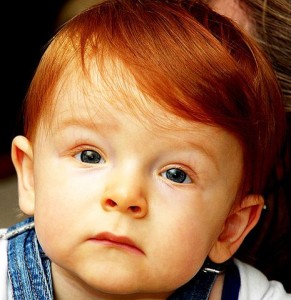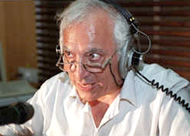
Novel Israeli program teaches adults how to calm themselves, and thereby soothe children easily upset by daily fears and frustrations.
Last summer, as half of Israel’s citizens lived under threat of missiles, the Association for Children at Risk developed a novel Autism and Resiliency Program aimed at soothing frayed nerves of the 1,000 children with autism spectrum disorder (ASD) it serves throughout the country, by training their teachers and parents how to calm themselves.
The organization devised the approach in cooperation with its affiliated Cohen-Harris Resilience Center. The program is now being piloted in several of the association’s ASD preschools to help adults and children deal with daily fears and frustrations, and not only the acute trauma of war. It is another example of an Israeli innovation born of conflict and adaptable to everyday needs in Israel and across the globe.
Nilly Cohen Aronson, professional director of the Association for Children at Risk, explains that during last summer’s 50-day Operation Protective Edge, hundreds of autistic children lacked the regular school routine that helps keep them calm, having to stay at home with parents already feeling frazzled from frequent rocket attacks.
If a non-autistic child has difficulty in dealing with the terrible reality of war which is, by definition, confusing and troubling, this experience is multiplied by thousands for an autistic child,” Aronson tells ISRAEL21c. “An autistic child needs a stable, calm, comforting and regulated environment in order to build a sense of trust and security within himself and in his environment. Sadly, this safe and stable environment is shattered with the siren’s sound and the sounds of bombs.
With the help of donations from around the world, the Cohen-Harris Center worked with Aronson’s autism experts to adapt its tried-and-true model for children with normative development, where educators and parents are taught practical coping skills and then teach them to the children in their care. For ASD children, the adults use the coping tools to calm themselves, effectively calming the kids as well.
Autism experts to hear about the Israeli program
Psychotherapist Daniel Hamiel, director of the education resilience program at the Cohen-Harris Center, will present the year-old program at the European Congress of Cognitive Behavioral Therapy, to take place in Jerusalem this September.
The unique aspect is that it’s not directed at the kids but at their parents and teachers, Hamiel tells ISRAEL21c. The first part is adult resilience and then the second part is how to use the tools they’ve learned in their communication with the kids. I think nobody else does it this way, and it could certainly be adapted to other countries and cultures.
This article has been republished with permission by www.ISRAEL21c.org. Click here to continue reading.




